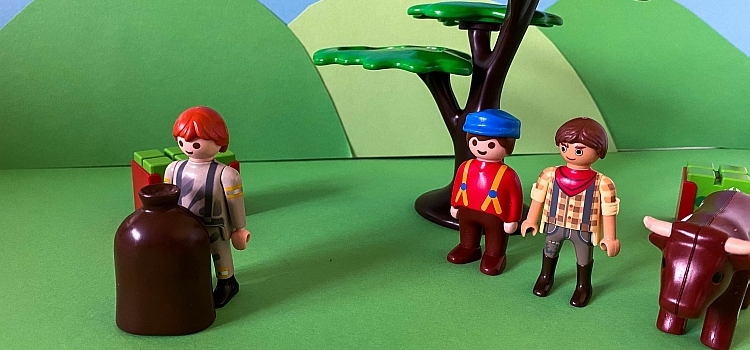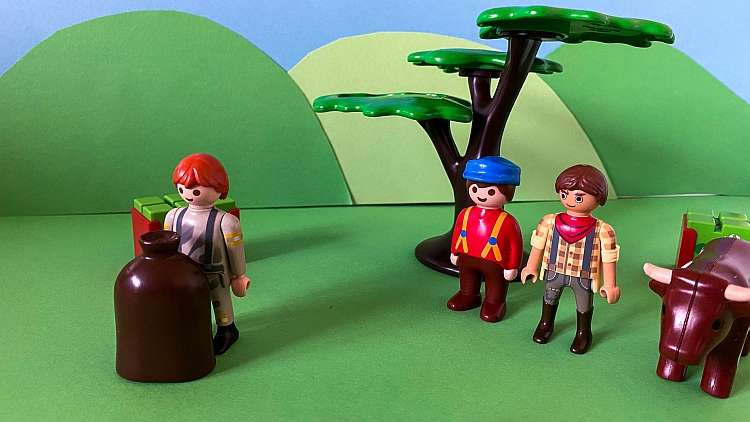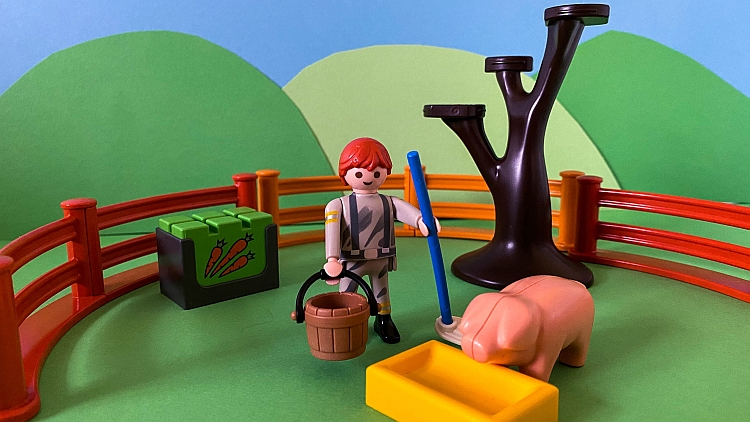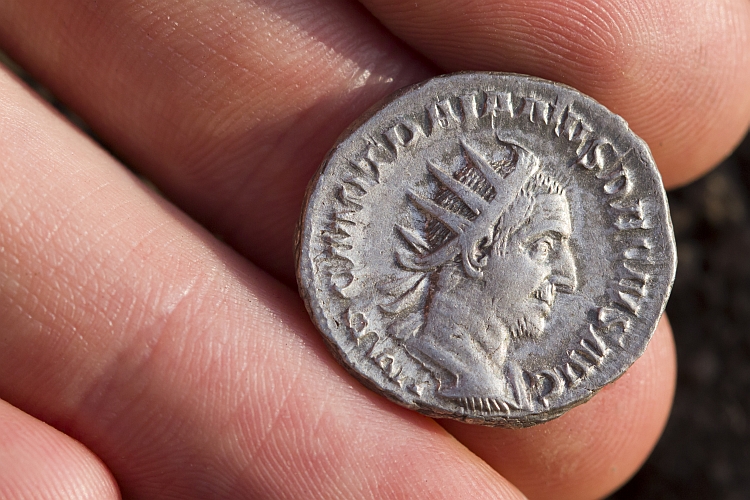
Hello everyone,
Welcome to the latest issue of our church newsletter. Hope that you are all continuing to keep well and stay safe. It was good to finally be able to be back in the church last Sunday although it will be some time yet before we all feel we can meet safely together. Our newsletter will continue to be sent out regularly to help continue to maintain contact and a sense of community while life continues to be restricted. You can find previous issues of the newsletter here. We would love to hear from you and are looking for uplifting and encouraging content to share in future issues of this newsletter. If you have any ideas or content that we can share, please do email them to Louise (publicity@christchurchuxbridge.org.uk)
We start with our opening prayer:
May the grace of God be among us,
and the peace of God be on our hearts.
Amen.
(Taken from Roots)
Reflection from last Sunday: The Prodigal Son
Today as some of us have come home to this building, it is a time to celebrate, that we are able to meet in person, for the first time in many months. Having been in churches that met in school halls, pubs and even night clubs, complete with sticky carpets (and it’s hard not to distracted by a sticky carpet!) its lovely to be in a church building where the worship of many years, seems to seep out of the walls somehow.
We feel keenly for all of our number not able to be with us in person. We ask you to keep safe our friends at home and continue to keep in touch with us through our recorded services, newsletter and every means you can. We miss you all. Church is however more than bricks and mortar, and how our church has dealt and is dealing with this virus, is testament to the fact we are church in the very original sense. A group of people who share a common love of Jesus and not just the building. We long for the time we can all be back together in person and with hugs. I don’t know about you, but I miss hugs and the physical proximity of my family and friends.
Coming back home to this place reminds me of the prodigal son parable, many of us learned at Sunday school; a story of coming home and a father’s love overcoming their kid’s stupidity. It’s a story of forgiveness, love, repentance and grace. So, let’s look at the parable and view it from today’s perspective.
The message of the parable in its simplest form is that no sin we can do, can separate us from God. If we choose to return to him, we will be welcomed, and he will celebrate our return. Everyone, no matter what they have done, can, with repentance and by the grace of God, return to God’s family. He will rejoice every time one of us returns to him. That how God’s grace works. Through Jesus we have God’s grace and I am thankful for it every day.
But what is a prodigal?
Prodigal is from Middle French and Late Latin and means wasteful, lavish, to consume and squander. So, was the prodigal the dad squandering his wealth by giving it to the son in the first place? Fay Rowland thought so when she wrote in the URC Daily Devotions last year. And how does that sit when we usually cast the dad in the God role?
So, let’s look at the father.
Was the father lavish and wasteful giving half his wealth to his son? What did it cost him? In Jewish culture of the time, to ask for your inheritance early, was like saying, ‘Father you are dead to me.’ In turn the family would consider the younger son dead too. That must have sent shock waves through the family. What caused this demand? Financially what did it cost him and his family to divide up his wealth like that? If I did it today, I would have to re-mortgage my home and live very frugally for a long while. It would also affect how our retirement would work and be financed. What did he have to give up, to give his son the inheritance early and did he have any sense of what the son would do with it? We will never know for certain but can only imagine.
Did the Father mourn for his son? I expect so, given the way he welcomed him back. Did he expect him to return when the money ran out? Was he planning to have him back as a servant, as Jewish culture prescribed? When he did return, he couldn’t do it, and had to welcome him back as a son. The symbolism of the giving of him a robe, ring, sandals, and the sacrifice of the calf, showed that he was accepted as family, forgiven and free.
Now let us think about the younger son.
What was he thinking? We have no indication of his age or what had happened to make him want to do this. Why, why why? There are so many questions about his motivation for asking his father for his inheritance early. Did he have any concept of how long the money would last? He certainly had not thought it out very well it seems.
However, if he was anything like some of the students just down the road from where I live, he had no idea of budgeting. They get this big amount of money deposited in their bank accounts at the beginning of the first term, bigger than anything they have had before. Many of them blow large sums on clothes, computers, partying etc. without thinking about how they will eat later in the term. Many of my friends have had pleas for extra money just weeks into term from their children. We notice too with the buses, that go up our road. We are one stop closer to town than the uni. The buses are full in late September and early October but by November they are back to normal, as most students have worked out they can walk the three-quarters of a mile to town for free and have more money for beer and food.
The younger son hopefully enjoyed running through the family money, with high living and luxury, until it has all gone and he must get a job. Not just any job, but the lowest and most degrading job for a Jew: looking after the ritually unclean pigs. How that must have hurt. He comes to his senses, after having to feed pigs and realises that his father’s servants were treated better than this. He is ready to accept his stupidity and return home with his tail between his legs, to become his family’s servant as tradition demanded. Did he hope that he might be forgiven? I don’t expect he thought he would get the welcome he did.
What a welcome he got, lavished with the clothes and food and love. I expect he was astonished and overwhelmed by the response of his dad. It was also I expect rather confusing; after all he rejected his family so strongly.
The older son is not thought about so often.
Had he made his younger brother’s life a misery growing up? Is that why the younger one wanted to go, or did it have nothing to do with him? Had he resented his younger brother some reason? Was the younger brother his dad’s favourite? It may, after all, have been the father’s action that caused the issue. Did he mourn or just accept this is how life was now? He obviously was still working the family land and was not there when the younger brother arrived. He felt disgruntled, even angry, at the work he had to do, calling it slavery. Did he just not recognise his privilege or was he truly working like a slave because his brother had taken so much out of the family funds? He does not appear to be overjoyed that his brother was back, and it appears that his first thoughts were that he had drawn the short straw again. The younger son was getting a party. He had not had a party, why couldn’t he have a party for his friends?
When the father says that ‘what was mine is yours’ he is suggesting that he could have had a party all along. The father was also probably trying to suggest that he had a good life and had not been to the depths like the younger son had. How did that make the older son feel? Did he recognise his privilege and his security that the family provided? So many questions.
There is no mention of the mother in the story. Is this just a Biblical story writers’ thing that the woman was not important in the tale or was there no mother on the scene? She could have died. We will never know. I wonder how she would have been feeling, as this story unfolded.
One thing is for certain: this family was a bit of a mess. A course of family therapy would probably be advisable. There are some difficult relationships between our three male characters. We can’t know if the three men worked it out.
Another way of looking at the story, is given by theologian Karl Barth. He suggested that the story can be viewed as an analogy for Jesus‘s life, casting the younger son as Jesus. He was separated from God when he came to earth and after a few good years of ministry went to the lowest of the low, in the cross. Only to be reunited with God after the resurrection. Another question, did Jesus see this when he told the story?
One thing is for certain there is a lot to learn from this parable beyond the simple meaning told in Sunday school. So, as we look beyond the profound but simple message of God’s willingness to forgive in his grace, we should use it to spur us on in our relations with both family and friends. Relationships take work, lots of work. The men in this family do not seem to have put in that work. The sons seem very self-centred and the father does not seem to have noticed. He may have doted on the younger one and possibly been distant and presumptive with the older one, who feels hard done by and over-worked.
So, what does it mean today in these Covid times?
Part of what I think has made Christ Church continue to work as a church in these difficult times, is the work lots of you have put into the relationships that build our church. Some of us have been able to use the technology that we have, bringing lots of church stuff online. As good as it is, and it really has helped lots of us, we are very aware that not everyone can access that. However, I think it’s the cards and phone calls and letters, the shopping, prescriptions and care that you have shown one for another that are the building blocks that will ensure that Christ Church will still be a viable church at the end of this.
We are into a second wave and it will probably be a long winter until we can fully be together again. So, we will need to continue to work hard at our relationships. I am not good at this, I know that, but I am going to try and do what I can.
Which brings me back to the traditional meaning of the story, one of God’s grace saving even the worst of us and rejoicing at our return to him. This parable comes as a package with the parables of the lost coin and the lost sheep. Jesus definitely wanted to us to know about the love and grace God has for each and every one of us. That we are all important, every single one of us. This will hopefully give us the strength to keep the church together with our care and love for each other and the strength to get through this pandemic.
Joanne Mackin
Our readings for this week:
Matthew 22:15-22 (NIV)
Paying the Imperial Tax to Caesar
15 Then the Pharisees went out and laid plans to trap him in his words. 16 They sent their disciples to him along with the Herodians. “Teacher,” they said, “we know that you are a man of integrity and that you teach the way of God in accordance with the truth. You aren’t swayed by others, because you pay no attention to who they are. 17 Tell us then, what is your opinion? Is it right to pay the imperial tax[a] to Caesar or not?”
18 But Jesus, knowing their evil intent, said, “You hypocrites, why are you trying to trap me? 19 Show me the coin used for paying the tax.” They brought him a denarius, 20 and he asked them, “Whose image is this? And whose inscription?”
21 “Caesar’s,” they replied.
Then he said to them, “So give back to Caesar what is Caesar’s, and to God what is God’s.”
22 When they heard this, they were amazed. So they left him and went away.
Further readings from the lectionary this week are as follows:
- Exodus 33: 12-23
- Psalm 99
- 1 Thessalonians 1: 1-10
Our worship
Our services will now take place in the church building each Sunday at 11am and will continue to be live-streamed on our Facebook page. If you wish to view our services online, you can find them here. You do not have to be a Facebook user to watch them – our services are publicly viewable. You can also view a recent service on our church website here. This week’s service will be led by Methodist local preacher Neville Walton.
We meet via Zoom immediately after the service for a virtual ‘coffee and chat’. The link for this will be shared in the comments on Facebook during the service. If you are unable to join us in person or online for our Sunday services, but would like to receive a recording of them on a memory stick to watch at home, please let us know.
Church charity news
Silent auction
We are still looking for items for our silent auction. They can be new or not, handmade or shop bought, physical or a service; ideas for Christmas presents might be good too.
Items that have been promised so far in our silent auction include the following:
- An offer to wrap up to 10 Christmas presents (paper to be provided by winning bidder)
- A hand-made baby quilt
- A personalised Tooth Fairy pillow
- Tea-bread baked to order
- A tin full of homemade cheese scones
- Two watches
- Brooches
If you have an item to offer for our silent auction, please let Denise, Cathy or Joanne know. You can contact them by email (charity@christchurchuxbridge.org.uk) or telephone (see the church directory for contact details).
Virtual sales table
We still have face-masks (£6 donation), crocheted face-cleaning pads (£3.50 donation for a pack of 7) and pot holders (£8 donation) available on our virtual sales table.
You can find more details about our church charity fundraising events and items on our virtual sales table here.
Gifts and donations can be made online via Virgin Money Giving (https://uk.virginmoneygiving.com/Hopenothate-Christchurch) or by cash or cheque made payable to Christ Church and clearly marked for the church charity.
Children’s Corner

Praying for other churches
This week we hold the following churches in our prayers:
- Eastcote Methodist Church
- Eastcote and Northwood Hills URC
Closing prayer
Into a world of confusion and disbelief,
into a world of welcome and rejection,
we take the grace of God that has been among us,
and the peace of God that has been on our hearts.
Amen.
(Taken from Roots)




